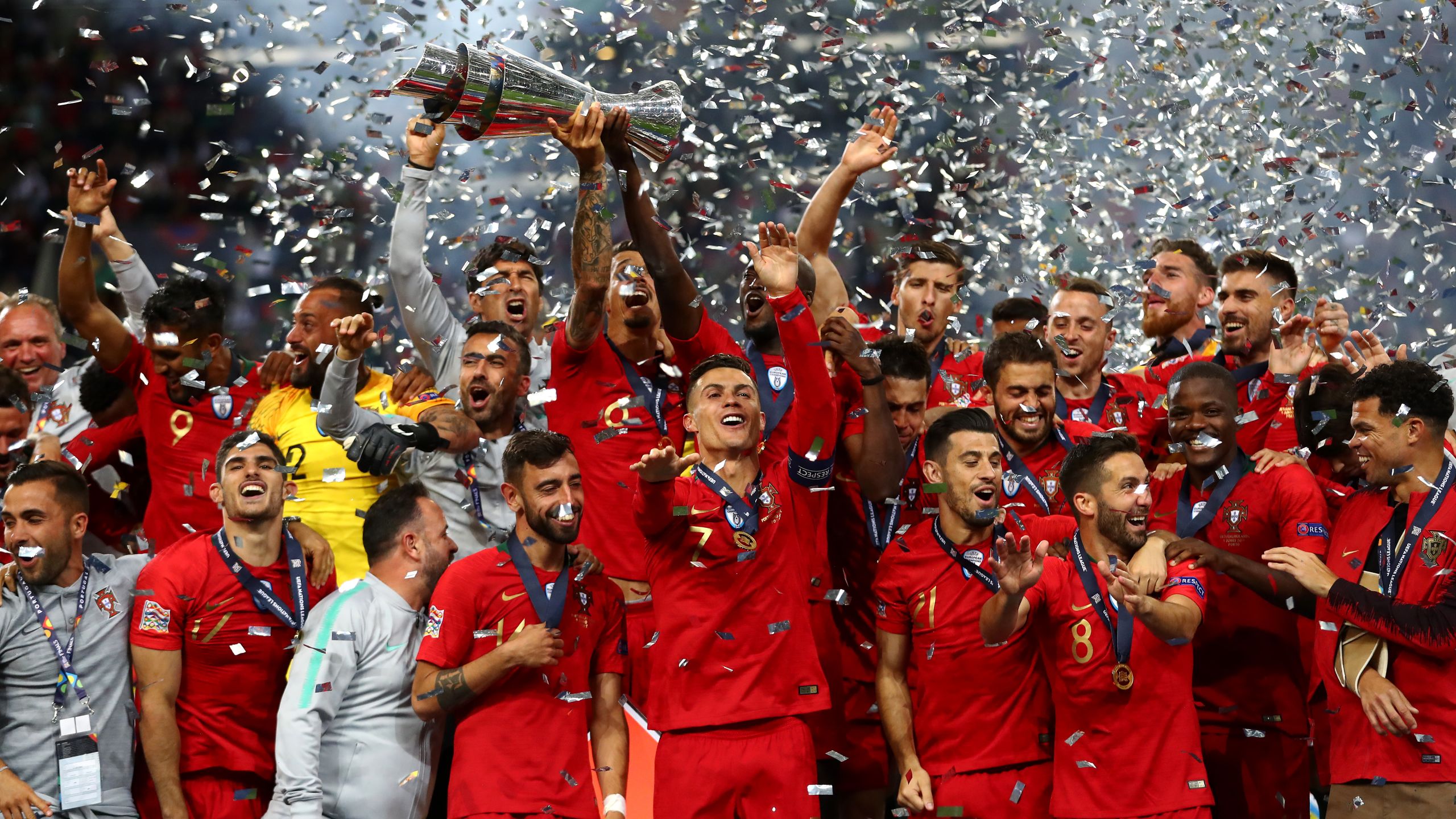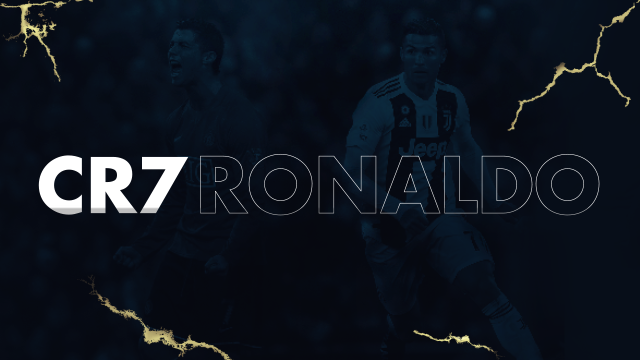
THE LONG WALK
Cristiano Ronaldo’s journey to the top
By Goal
Cristiano Ronaldo’s beginnings in Santo Antonio, a mountainous neighbourhood of Funchal, Madeira, could barely have been humbler.
He was born on February 5, 1985, the youngest of four children - two girls and two boys. His mother Maria Dolores dos Santos Aveiro was a cook and his father, Jose Dinis Aveiro, a gardener. Together they worked hard to provide the basic necessities for their young family.
It was Jose who ensured that the young Cristiano had a childhood steeped in football. A kit man with the local club, Andorinha, he nudged his youngest son towards a pathway that would lead him to become one of the greatest footballers the game has ever known, a face recognised all over the world, which has come to universally signify self-belief, determination, resilience, power and quality.
Ronaldo’s footballing career took him from Andorinha to Nacional and then to the mainland with Sporting CP, where he was ultimately signed as a 12-year-old after battling his way through a three-day trial that would have halted boys of lesser character.
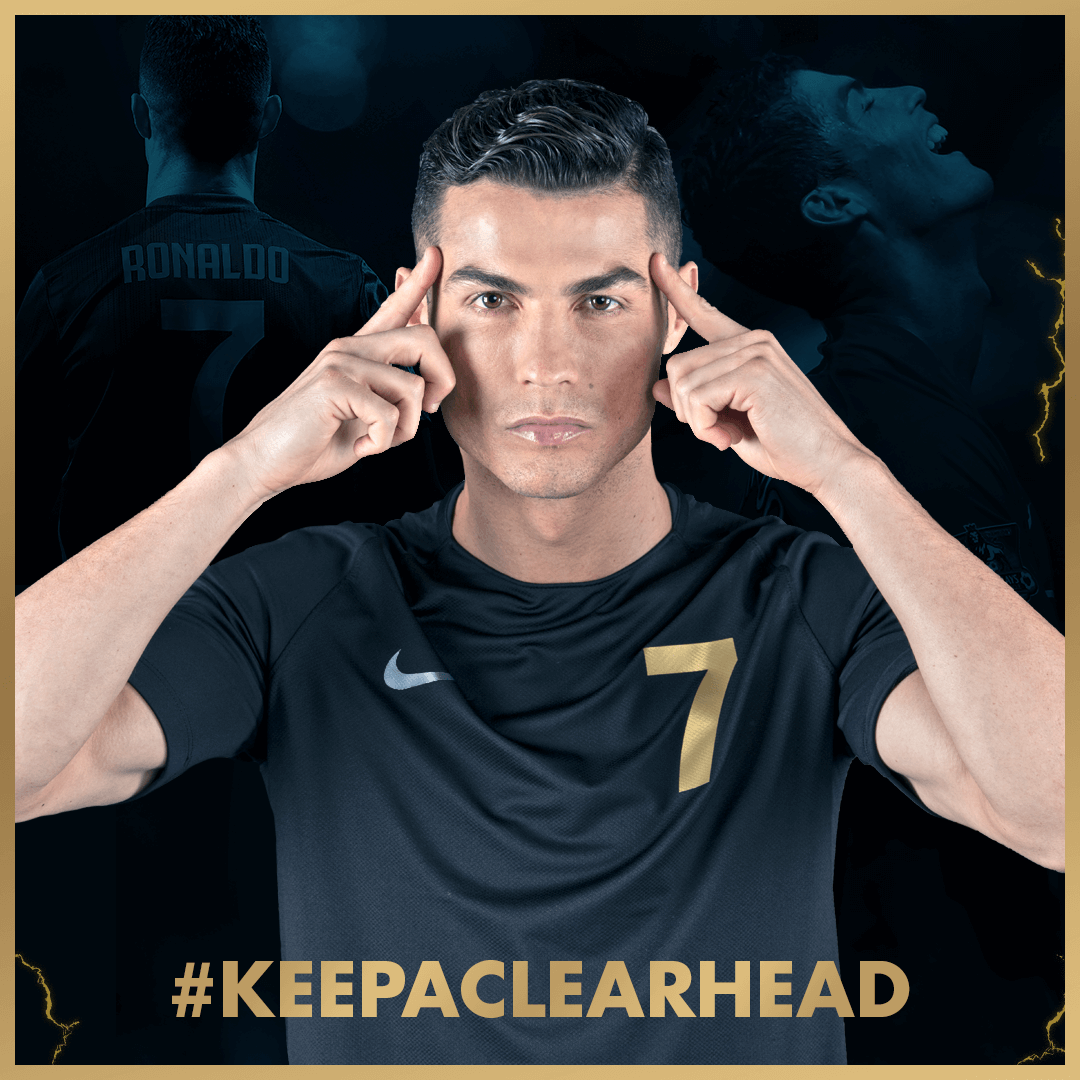
“When he was little, he was just like other kids,” Fernao Barros Sousa, his godfather and the key figure behind his move to Nacional, told Goal. “But he had something that was different from the others and that was that he played a lot of football. Even from a young age. When the other kids were studying, he put his studies on the back seat in order to play football.”
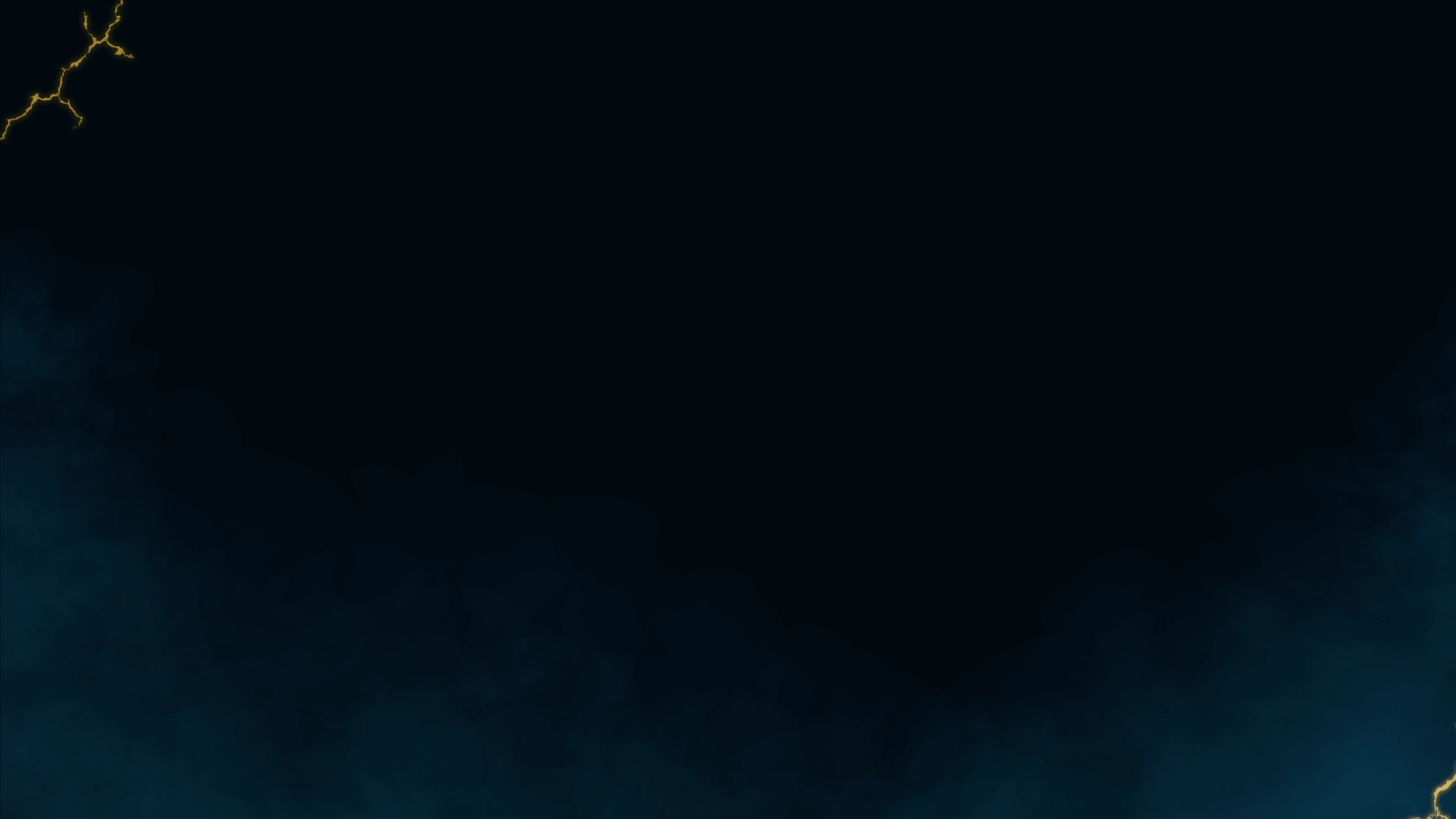
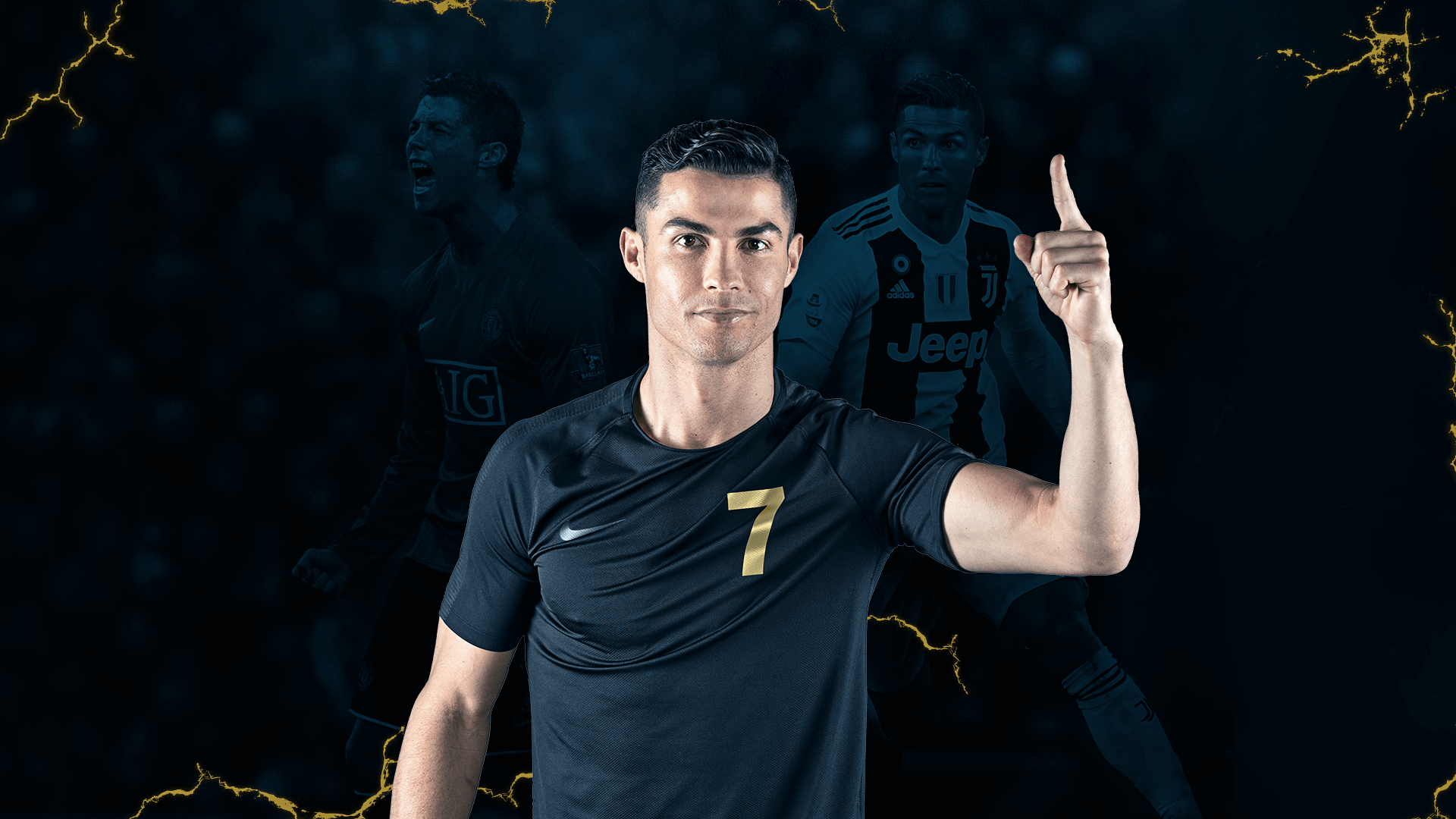
Once in Lisbon, the young Ronaldo would have his resilience tested again, however. The capital was a rough place for a scrawny young boy on his own, and it would have been easy for him to allow his doubts to take over.
Joao Marques de Freitas, a socio of Sporting who played a role in the youngster’s move to the capital, explained: “It was very difficult for him to adapt in Lisbon because Madeirans have a pronunciation which is very different to here. Cristiano had problems at school, they laughed at him, and he resisted. At one point, he wanted to leave, but fortunately he stayed. He went through a bad time.”
A breaking point nearly came, with Ronaldo so unhappy he briefly returned home to Madeira. A pep talk from Barros Sousa later, he was back on the plane to the mainland, having overcome his doubts, and was once again en route to legendary status.
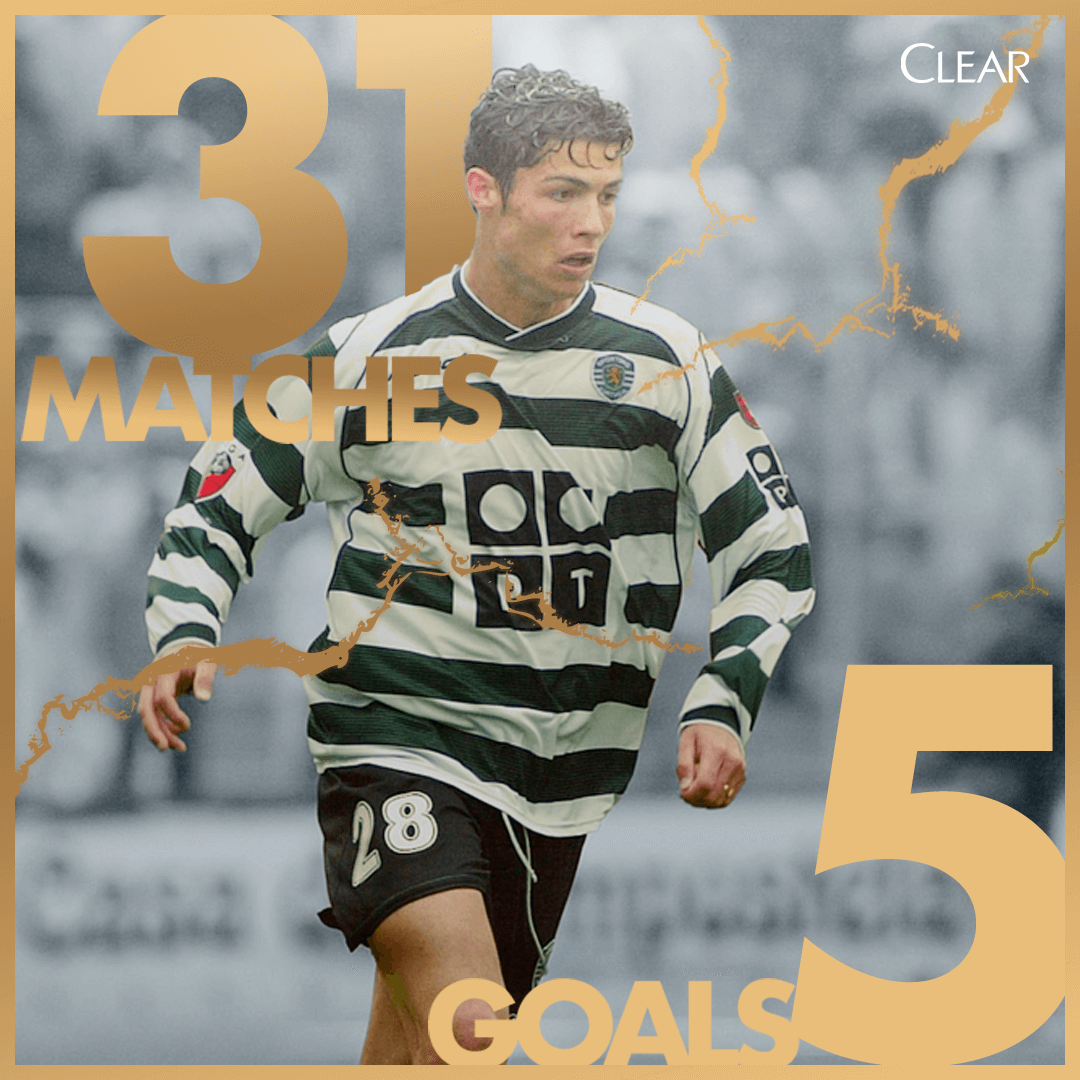
But success did not come by chance. Even as a young player, Ronaldo’s work ethic was second-to-none, as academy team-mate Christopher Pilar explained: “Ronaldo was different because of all the work he put in - not so much during the training sessions, but after the sessions. He would always stay and practice for an extra half an hour on the areas he had most difficulties.
“The way he trained, the way he motivated his team-mates, the way he corrected them, his will to win, his will to impress, was superior to all the others.
“We all wanted to play football and to please our parents. But not him - his dream was not only to please his family, but everyone who watched him.”


Ronaldo would go on to be a sparkling success at Sporting, playing just a single season for the first team before making his move to one of the biggest clubs in the world, Manchester United.
As an 18-year-old, he had not made it yet, but was then handed the iconic No.7 shirt, which had been worn by such greats as George Best, Eric Cantona and David Beckham.
“There have been a few players described as the new George Best, but this is the first time it’s been a compliment to me,” the late Northern Irishman, an iconic figure for the Red Devils, quipped in 2004.
Immediately presented with this huge burden of expectation, lesser mortals might have bent and broken, but instead it proved an extra source of motivation for the thrilling young talent.
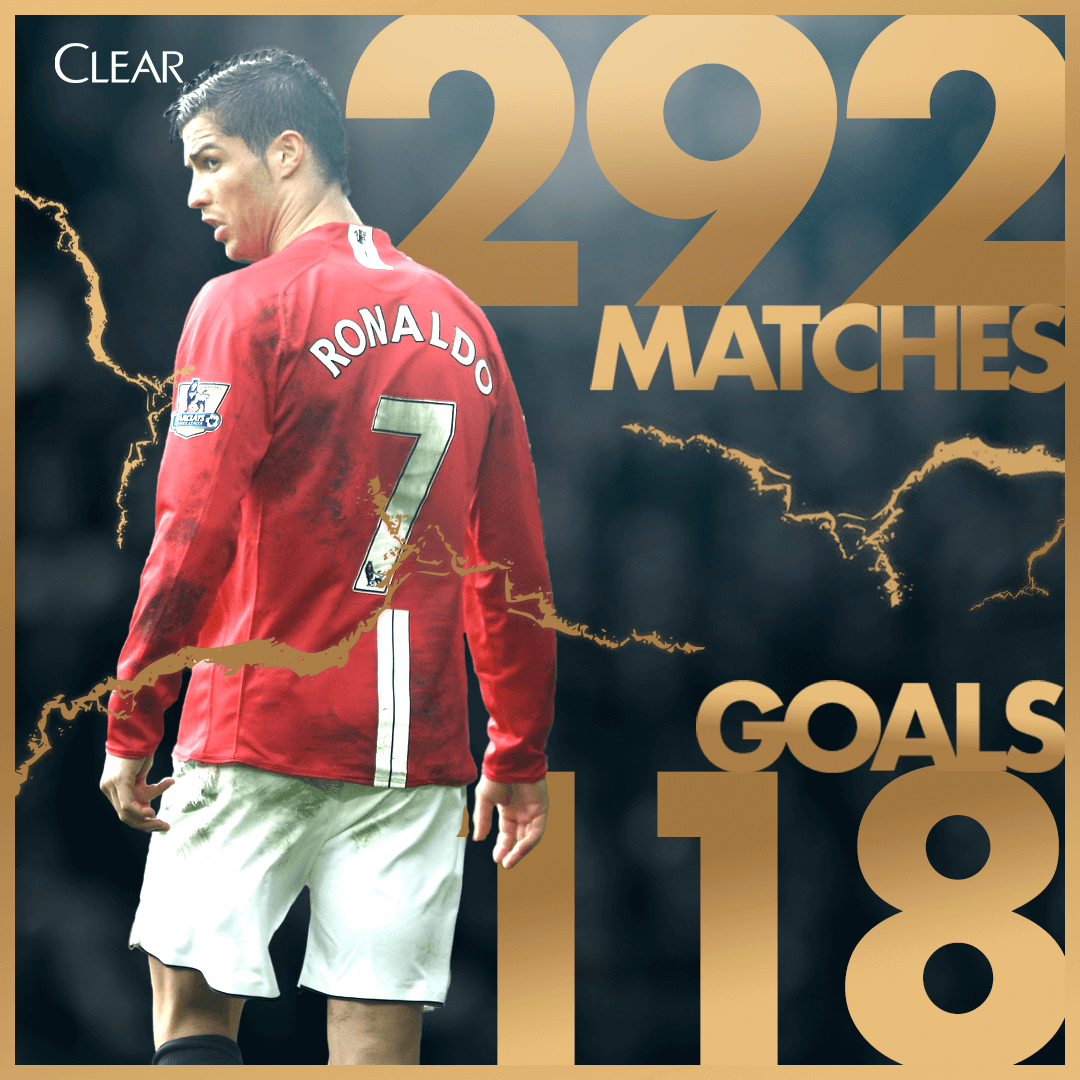
“I was forced to live up to such an honour,” Cristiano would say in 2007.
Wayne Rooney praises the self-belief of his former team-mate in his autobiography: “If there’s one person with a bigger self-belief than Ronaldo, I haven’t met him yet."
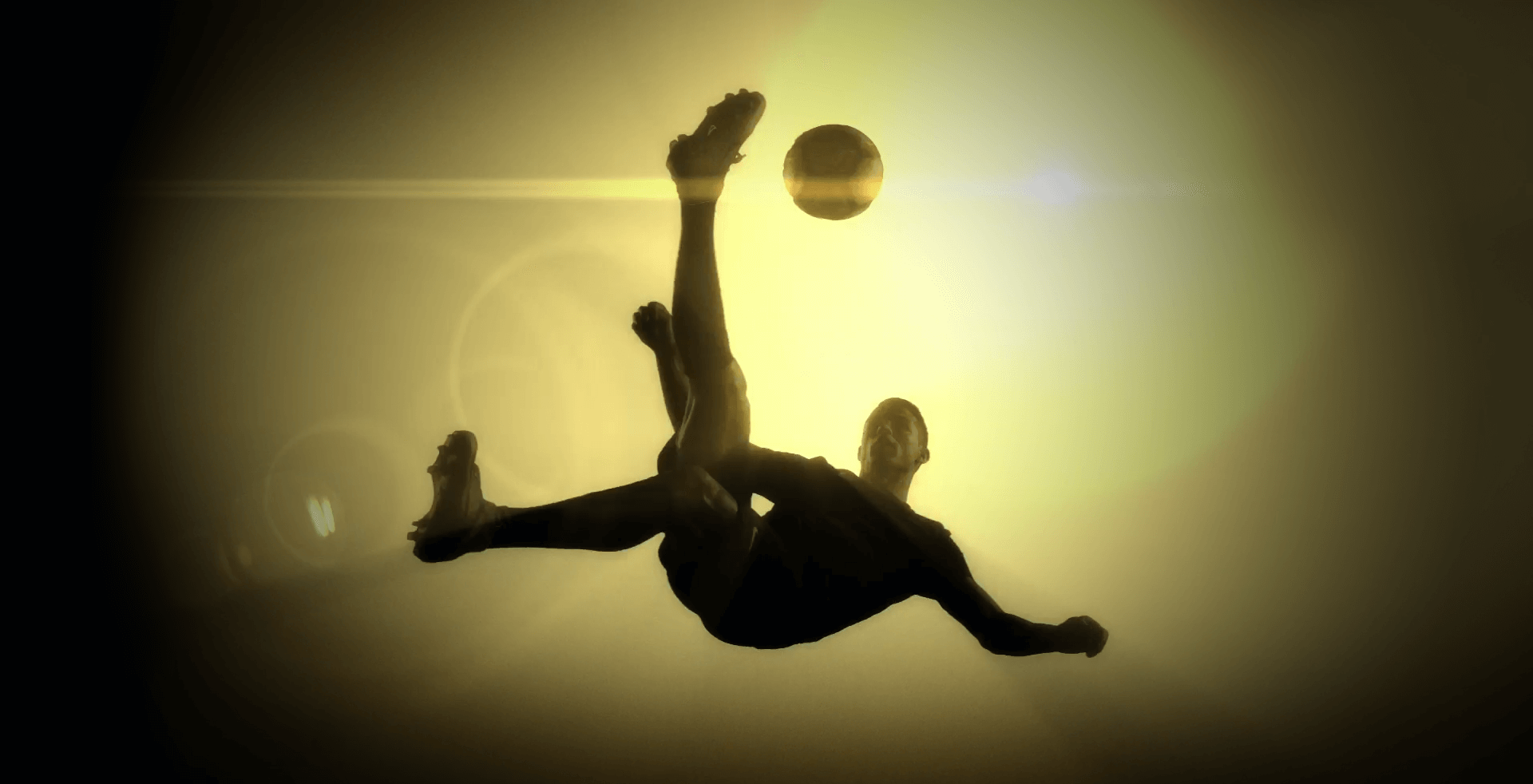
Around the dressing room, Ronaldo was bullish in his assertion that he would become the best, as the England legend went on to explain: “He told us he wanted to be the best player in the world, that he was desperate to be the greatest. Ronnie’s ambition wasn’t just talk either.
“In the changing rooms before the 2006-07 season I noticed something different about him. He was bigger. He had come back from the World Cup in Germany muscly and beefed up, like he’d been on the weights all summer.
“On the pitch in pre-season, he had started cutting out the fancy tricks and flicks and finding an end product to his mazy runs.
“I know one thing - this change in Ronaldo hadn’t come about by luck. He works bloody hard. When I watched him train or saw him scoring great goals for fun in pre-season friendlies, I thought he really could become the best player in the world.”
Ronaldo won everything worth winning at Old Trafford, including the first of five Ballons d’Or, before setting his sights on a new challenge with Real Madrid.
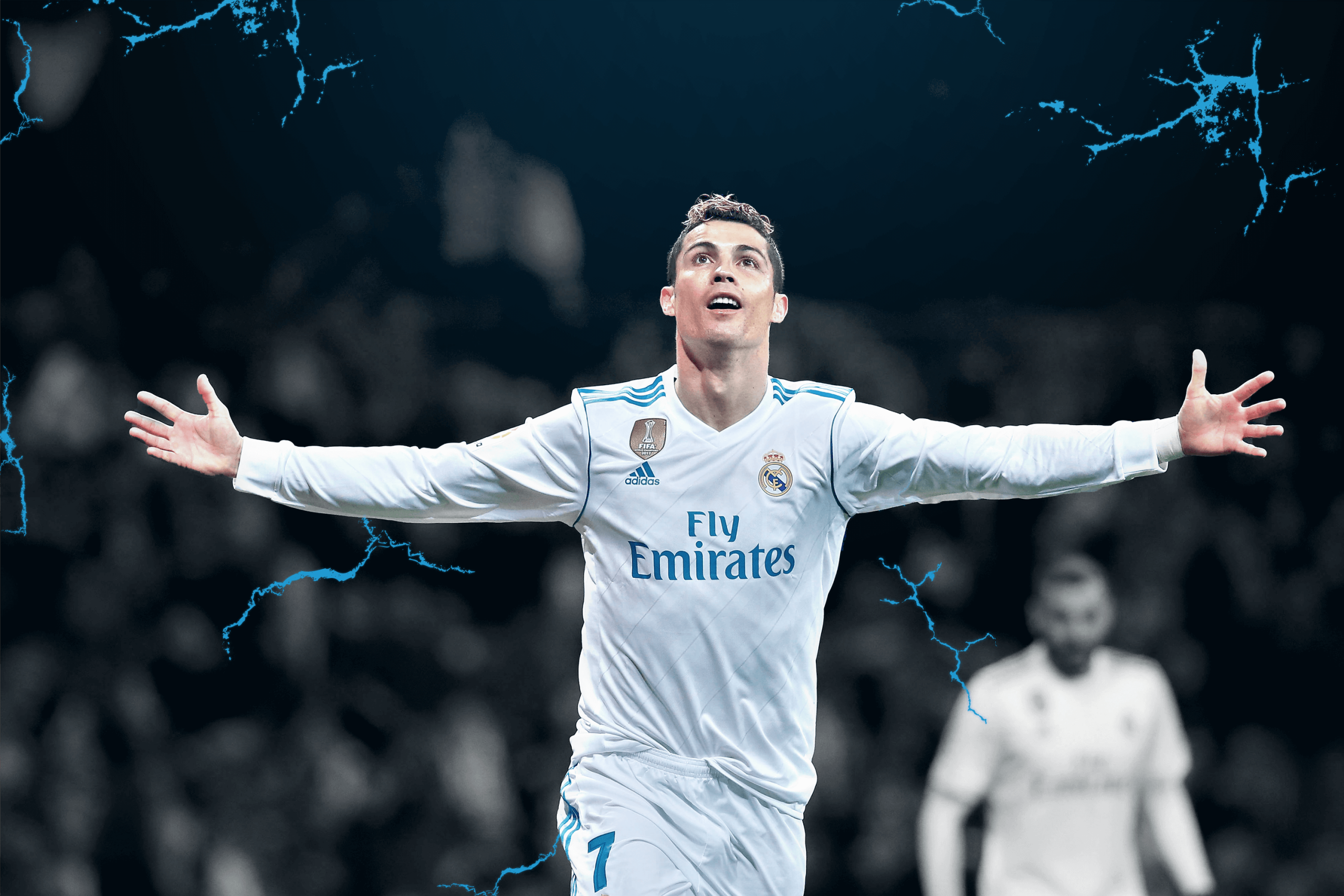
Having yearned to move to the Bernabeu for a year, he finally had his wish granted as he became the world’s most expensive player, carrying a price tag of €94 million. When he was presented to the club’s fans, he attracted 80,000 to the stadium.
Only the very best could handle the pressure of playing for such a giant club having arrived for an unprecedented transfer fee, and yet Cristiano more than proved himself worthy, elevating himself to a superstar status that stretched beyond the bounds of sport.
Of course, his notoriety was persistently underpinned by his remarkable achievements on the field, where he retained a particular ability to raise himself for the biggest occasion, be it a Clasico battle against Barcelona or taking a decisive penalty kick in the Champions League final against Atletico Madrid. When Real needed Ronaldo, Ronaldo inevitably answered.
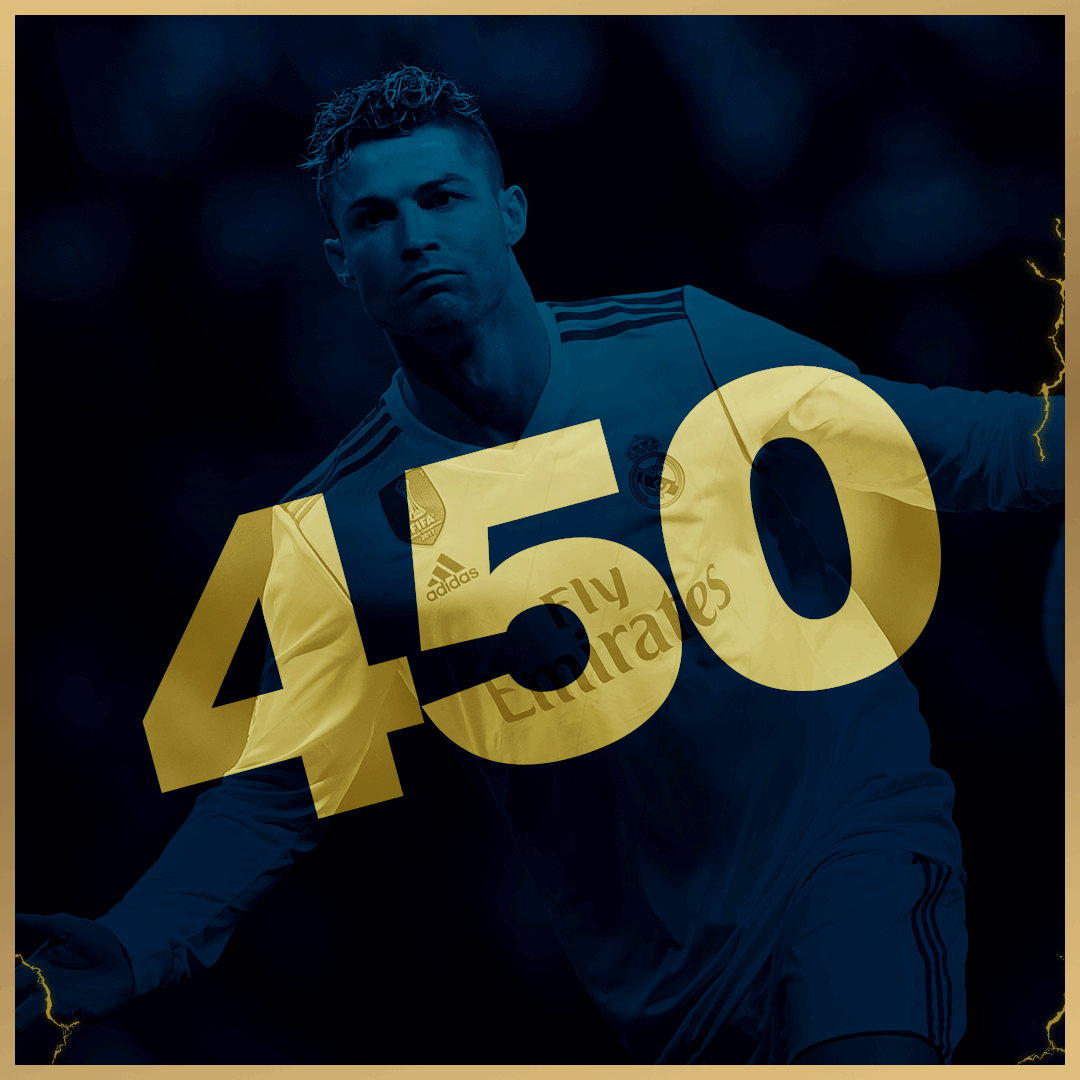
He even reinvented himself, switching inside to become a centre forward of unparalleled quality, becoming the club’s record scorer in the process, surpassing greats like Ferenc Puskas, Alfredo Di Stefano and Raul.
Amid the goldfish-bowl atmosphere of Madrid, where even legends can be crushed by the unique pressure, Ronaldo instead thrived, creating a diamond standard that all others will be matched against. In addition to four more Ballons d’Or, there were a string of team achievements that he spearheaded, including four Champions Leagues, three of which were won in successive years before he elected to leave for Juventus and another new challenge in the summer of 2018.


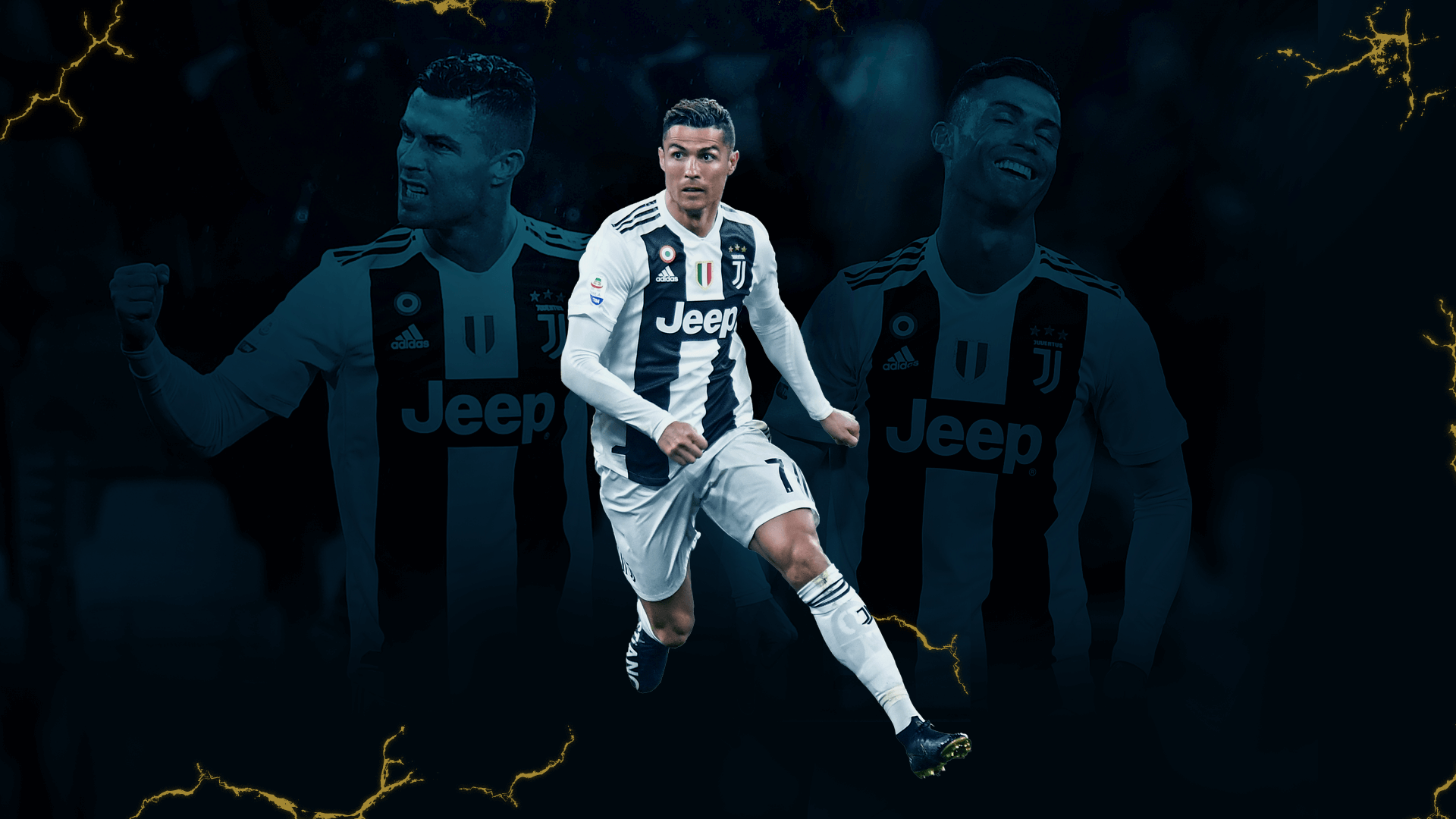
In Turin, he would be faced with the familiar critics, who suggested he was too old to be worthy of his €100m transfer fee. Three goals in his first seven Serie A appearances was a slow start – but only by his incredible standards – and he would soon cut through the noise in typically muscular style to lead Juventus to the Champions League quarter-finals.
Again, he would prove his unerring ability to produce his best when the chips were down, scoring a stunning hat-trick in the last-16 second-leg tie to help Juve overcome Atletico Madrid 3-2 on aggregate when it seemed a comeback was impossible.
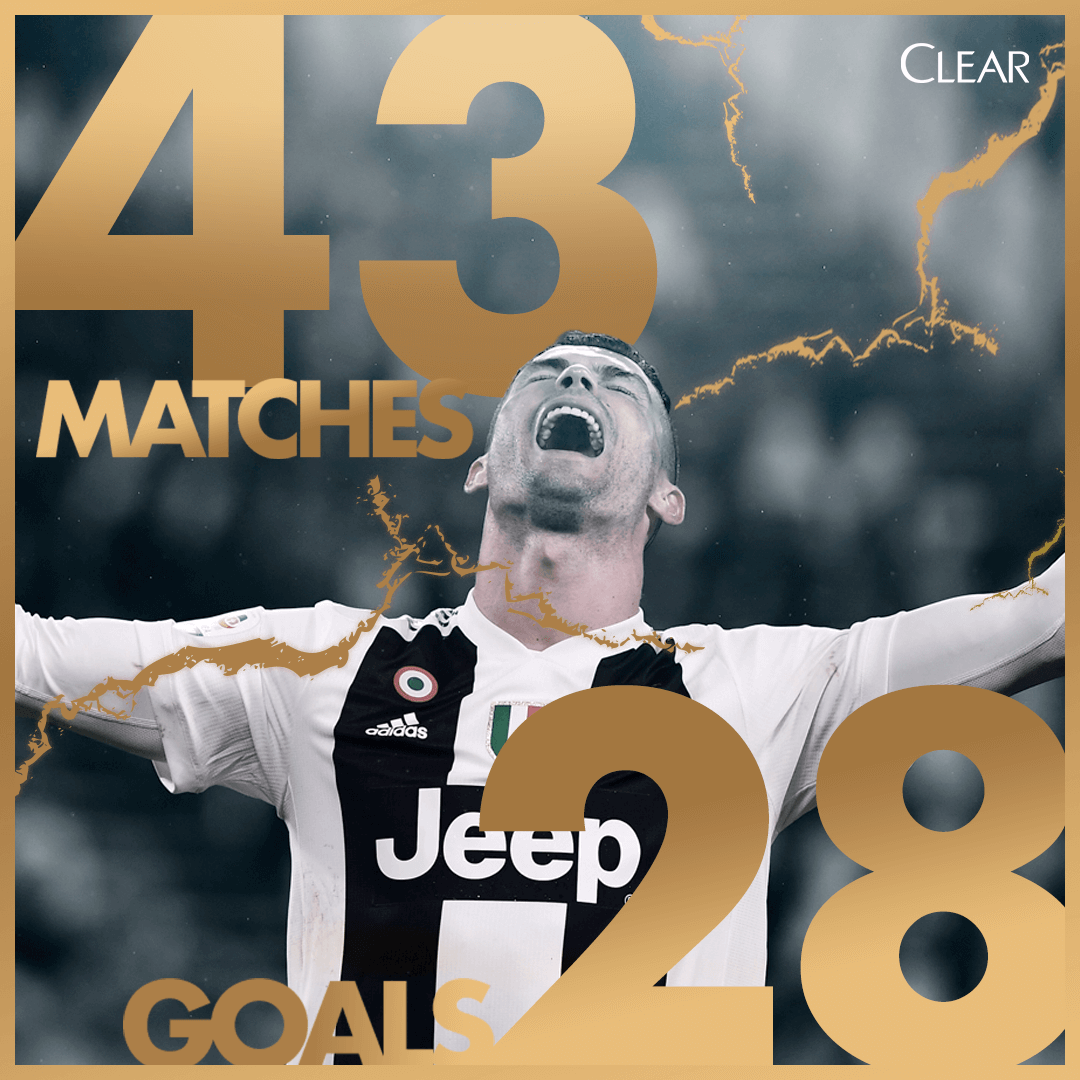
Ajax might have proven a step too far for the Italians, but Ronaldo contributed both their goals in a narrow loss and helped them seal another Serie A title.
Next up was a challenge on the international front by way of the Nations League. Just as at club level, Ronaldo had proven an inspiration for his country, and went into the tournament having scored 85 times in 156 appearances since making his debut in 2003.
He had the opportunity to make history by captaining the first team to win UEFA’s new competition – with the added incentive of doing it on home soil.
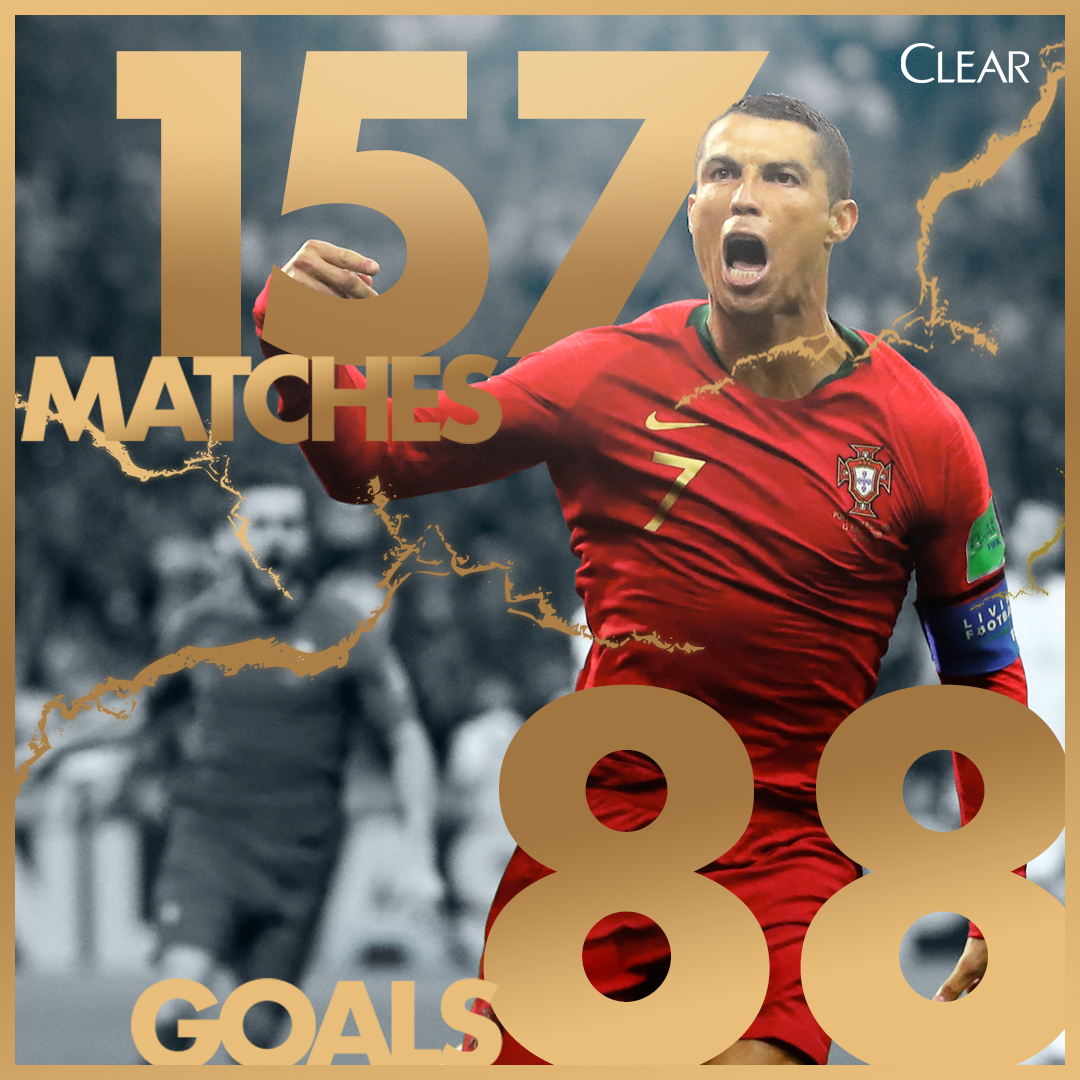
Euro 2004 provided only disappointment for Cristiano and his Portugal team-mates as they lost to Greece in the final, but he rallied those around him to success in France 12 years later against the odds.
Now a seasoned international campaigner, the 34-year-old was out to bring more joy to his home nation this summer. Switzerland attempted to block his path to the final, but he blew past them with an astonishing hat-trick to seal a 3-1 victory in Porto.
The Netherlands were Portugal's next challenge, and Cristiano put in a leader's performance to help guide his country to another major title as Portugal became the first winners of the UEFA Nations League.
He is a man who has proven throughout his legendary career that he has a ferocious appetite to overcome the odds, making him a role model for all those whose aim it is to achieve excellence. Hard work, dedication and a resolute belief in himself have been the rocket fuel to lift Ronaldo to an immortal status in the game that he loves.
Cristiano Ronaldo is the brand ambassador for Clear since 2009 and is now featured in the Keep a Clear Head campaign. Click here to see more

